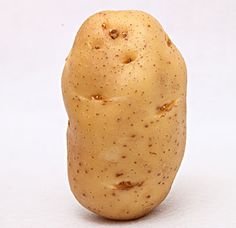Description
beetroot | chukandar | beet root
- Farm-Fresh Quality: Our beetroots are harvested at peak ripeness to ensure maximum flavor and nutritional value. Grown using sustainable farming practices, they are free from harmful chemicals and pesticides.
- Nutrient-Dense: Beetroot is an excellent source of dietary fiber, vitamins A, C, and B6, as well as minerals like iron, manganese, and potassium. It is also rich in antioxidants, particularly betalains, which are known for their anti-inflammatory properties.
- Heart-Healthy: Regular consumption of beetroot may help support cardiovascular health by improving blood flow, reducing blood pressure, and increasing endurance, making it a great addition to a heart-healthy diet.
- Versatile Ingredient: With its naturally sweet flavor, beetroot can be used in both savory and sweet dishes. It’s perfect for salads, roasted vegetables, soups, smoothies, and even desserts like cakes and muffins.
- Naturally Detoxifying: Beetroot supports the body’s natural detoxification processes, aiding in liver function and promoting overall wellness.
Product Details:
- Packaging: Available in 500g / 1kg bundles (Choose your preferred size)
- Storage: Store in a cool, dry place or in the refrigerator. For the best taste and texture, consume within 1-2 weeks of purchase.
- Origin: Sourced from local farms that follow environmentally-friendly and sustainable farming methods.
Why Choose Our Beetroot?
Our Fresh Beetroot offers a perfect blend of taste, nutrition, and versatility. Whether you’re looking to enhance the color and flavor of your dishes or boost your health with nutrient-rich foods, our beetroot is an ideal choice. Add it to your shopping cart today and discover the delicious ways you can incorporate this superfood into your meals!
FAQs
1. What are the health benefits of beetroot?
Beetroot is packed with essential nutrients, including vitamins A, C, and B6, as well as minerals like iron, potassium, and manganese. It’s also rich in antioxidants and dietary fiber, which support heart health, improve digestion, and help in detoxifying the body.
2. How should I store beetroot to keep it fresh?
Beetroot should be stored in a cool, dry place or in the refrigerator. If you’ve cut or peeled the beetroot, store the pieces in an airtight container in the fridge and consume them within 1-2 days for the best quality. Whole, uncut beetroots can last up to 2 weeks in the fridge.
3. Can I eat beetroot raw?
Yes, beetroot can be eaten raw. It’s commonly grated or thinly sliced into salads, smoothies, or juices. Eating raw beetroot preserves its nutrients, especially vitamin C, which is sensitive to heat.
4. How do I prepare beetroot for cooking?
To prepare beetroot, start by washing it thoroughly to remove any dirt. You can peel the skin off if desired, though it’s edible and contains nutrients. Beetroot can be boiled, steamed, roasted, or used raw in various dishes.
5. Why is beetroot sometimes sweet?
Beetroot has a naturally sweet flavor due to its high sugar content, which is particularly noticeable when it’s roasted or juiced. This natural sweetness makes beetroot a versatile ingredient in both sweet and savory recipes.
6. Does beetroot stain your hands or clothes?
Yes, beetroot can stain your hands and clothes due to its deep red pigments called betalains. It’s recommended to wear gloves while handling beetroot and to wash any stained fabric immediately with cold water to prevent the stain from setting.
7. Is beetroot good for weight loss?
Yes, beetroot is low in calories and high in fiber, which can help you feel full and satisfied while supporting digestion. Its natural sweetness also makes it a great alternative to sugary snacks.
8. Can beetroot help with lowering blood pressure?
Beetroot is known to help lower blood pressure due to its high nitrate content, which the body converts into nitric oxide, a compound that relaxes blood vessels and improves blood flow. Regular consumption of beetroot may contribute to better cardiovascular health.
9. How can I use beetroot in cooking?
Beetroot is incredibly versatile and can be used in a variety of dishes, including salads, soups, smoothies, and roasted vegetable medleys. It can also be baked into cakes and muffins or pickled for a tangy treat.
10. Why is my urine pink after eating beetroot?
Pink or reddish urine after consuming beetroot is a harmless condition known as beeturia. It occurs in some individuals due to the pigments in beetroot and is not a cause for concern. The color should return to normal within a day or two.
11. Is beetroot safe for everyone to eat?
Beetroot is generally safe for most people. However, individuals with kidney stones or those prone to oxalate-related issues may need to consume it in moderation due to its oxalate content. It’s best to consult with a healthcare provider if you have any concerns.








Reviews
There are no reviews yet.